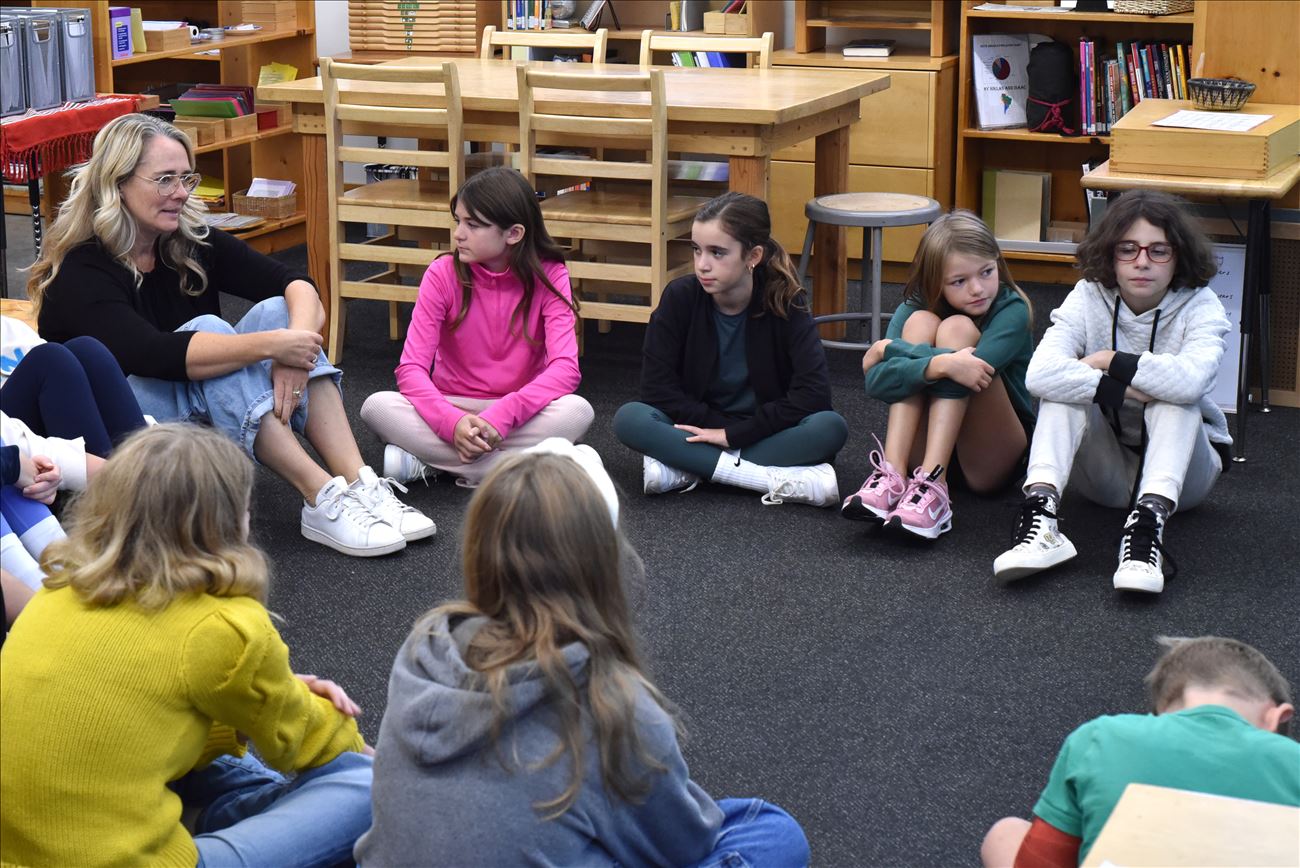
We do things differently. Rather than having a school counselor who provides triage when children are in crisis, we support the adults who care for children. This more individualized approach reaches every child through the adults they already know and love.
In collaboration with Mental Health Consultant, Trisha Short, MA, LPC, IMH-E (II), we’ve developed a child-centered approach to mental wellness in alignment with our Montessori philosophy that reinforces the trust between students and the adults in their lives. It also aligns with the U.S. Surgeon General's recent advice on the mental health and well-being of parents, caregivers, and families.
Faculty have the opportunity to meet with Trisha twice each month to help them be their best for the families in our school community. Trisha sometimes meets with young adolescent students individually to normalize mental health and support their unique social needs. She also leads friendship circles with elementary students. Coffee with Trisha is an opportunity for parents and guardians to meet with Trisha in a group setting to share and learn about relevant topics. Trisha's recommended book list is on our Resource page.
In Permission to Feel by Marc Brackett, PhD, he explains that “Educators and parents need to demonstrate the ability to identify, discuss, and regulate their own emotions before they can teach the skills to others in our classroom, research shows that if there is an emotionally skilled teacher present, students disrupt less, focus more, and perform better academically.” (p. 17) “Therefore, working with the adults who work directly with the students not only creates a secure environment and relationship which improves the student's overall success it also supports their emotional wellbeing.” (p. 20)
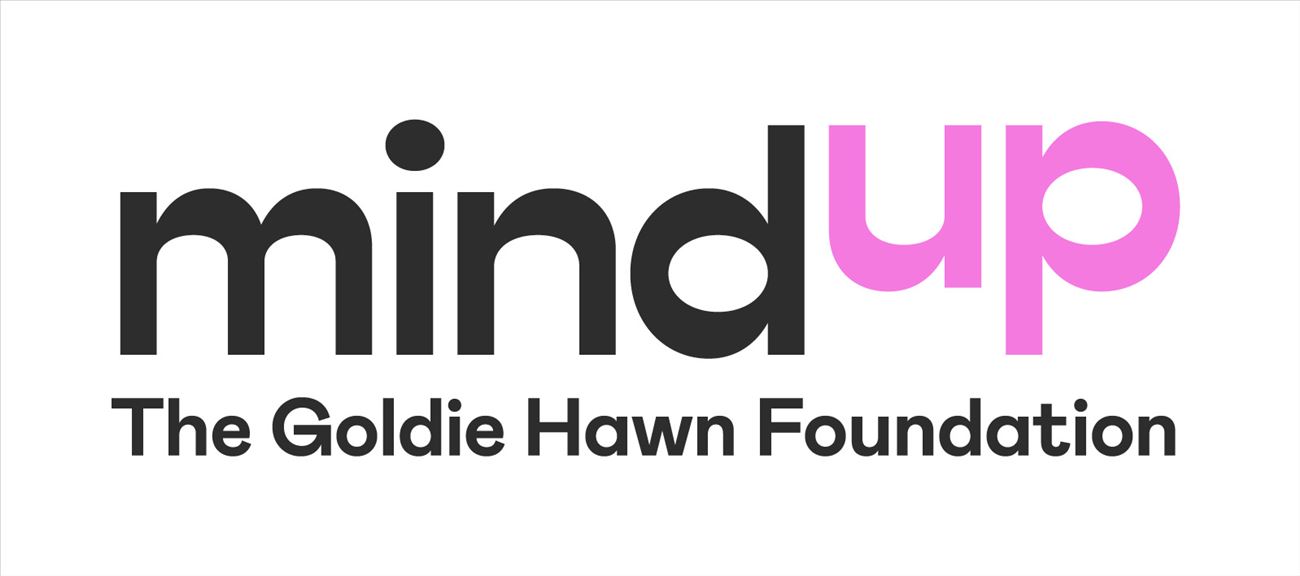 New! MindUP
New! MindUP
We are introducing an exciting, evidence-based social and emotional learning (SEL) program that can help our students better engage in learning, learn to self-regulate their behavior, and improve their attention skills and well-being. MindUP™ is a classroom-based program that teaches children strategies guided by the fields of neuroscience, mindful awareness training, social and emotional learning, and positive psychology to support success in the classroom and life.
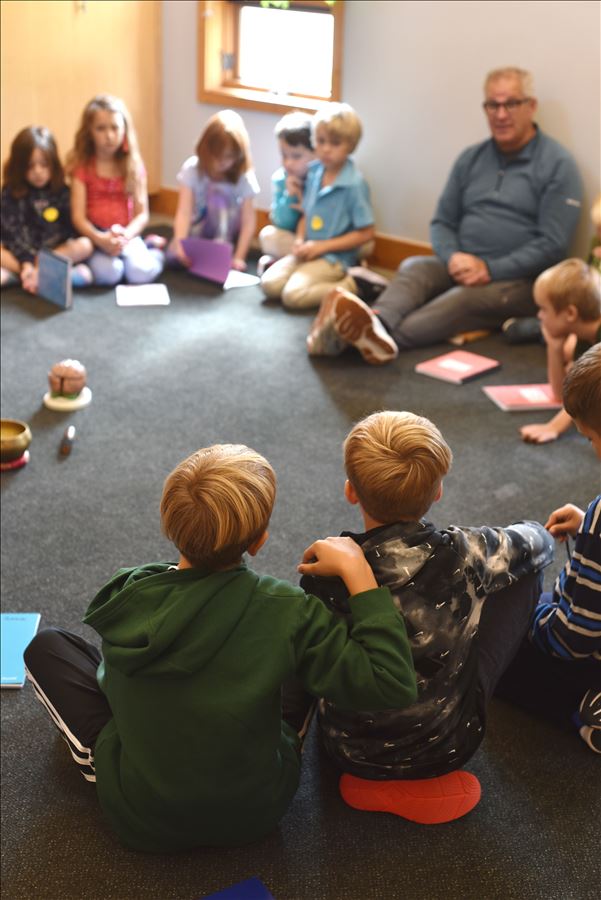
A core practice of the program is the “Brain Break.” The Brain Break is a simple mindful breathing and listening activity that is practiced three times per day. This activity can help foster attention and self-regulation.
Parents and caregivers will have the opportunity to learn about what children are practicing in the classroom through a short online course designed specifically for families to bring MindUP strategies home. The course is designed to complement the school program and can be paced along with children’s learning in the classroom. You can access this course at home.mindup.org.
The MindUP™ curriculum for Kindergarten and Elementary students is co-facilitated by Jen Superson, Children’s House parent and MindUP™ Specialist, and Steve Maas, PE Guide. Trisha Short, Mental Health Consultant, provides the lessons at the Junior High.
To learn more about the research around social and emotional learning, please visit www.casel.org. For further details about MindUP™, please visit www.MindUP.org. If you have further questions about the program or would like more information, please contact Michele Shane, Head of School.
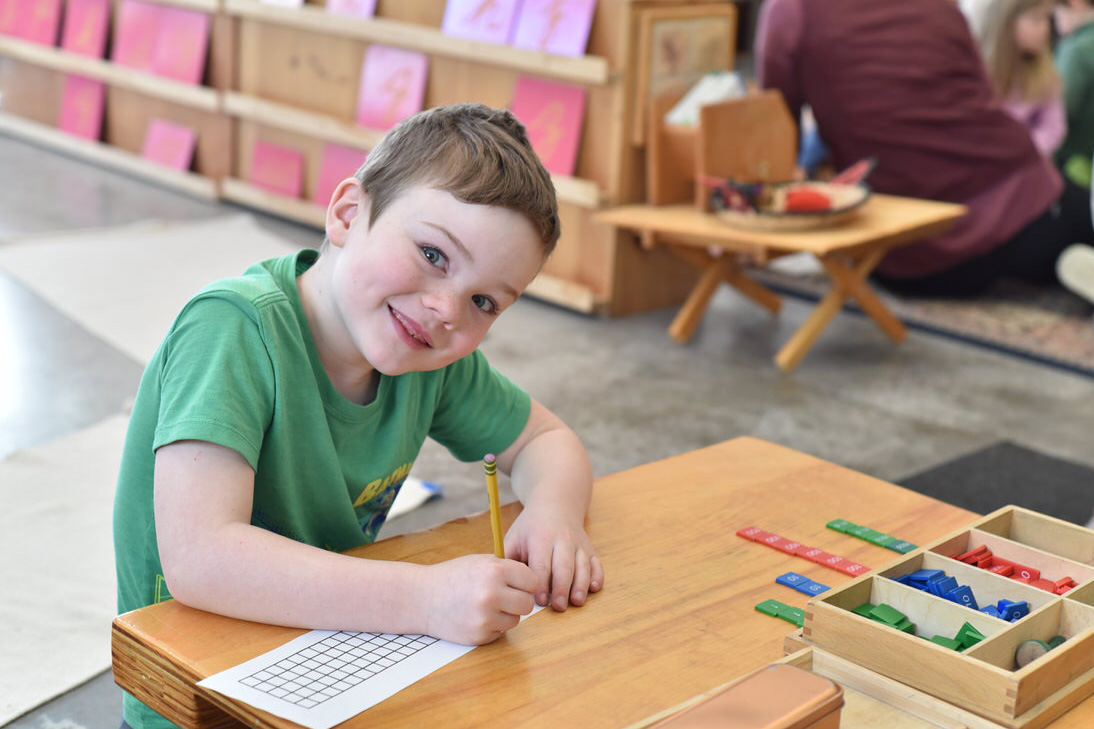 Social and Emotional Learning in a Montessori Classroom
Social and Emotional Learning in a Montessori Classroom
True social and emotional learning happens every day in a Montessori-prepared environment. Here are some examples at every level. Observing in the classroom and talking with a trained Montessori guide is the best way to see it for yourself.
From the Beginning
In our Nido environment, children are free to safely explore their world with the guidance of trained, loving adults. Unrestricted movement and age-appropriate activities encourage naturally unfolding development at an individual pace determined by each child's nature and inner guide. Children sometimes struggle to overcome obstacles and may become frustrated or cry. The adults carefully observe to support children and help name emotions that we see. Not every cry requires intervention; sometimes acknowledging the communication is enough for the child to continue their work.
Pathway To Independence
Under the guidance of nurturing adults, children in our Young Children’s Community learn how to gain independence by doing. Here, children participate in activities that promote independence, concentration, and a sense of accomplishment. They explore the world together and begin understanding the ins and outs of social interactions. Cooperative activities such as music, vocabulary exploration, food preparation, and story-telling help children understand how they contribute to their community.
Social Development
Primary-aged children are naturally curious about the people around them. The children spend three years within their social group, each becoming a valued and meaningful part of their classroom community. Each child’s contribution to the community is seen as valuable and essential. Because of the freedom allowed in the classroom, they learn from each other in authentic interactions between multi-aged children about social graces and nuances in a safe and respectful setting.
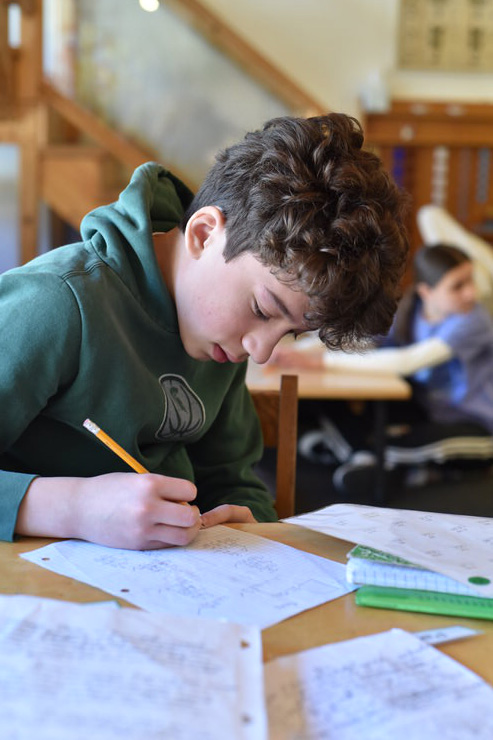 Senses Of Justice And Community
Senses Of Justice And Community
Elementary students meet regularly as a group to discuss classroom ethics, solve problems collectively, and present research to one another. When the community comes together, they can negotiate solutions in an environment where each individual’s feelings and perspectives are respected. With the classroom guide acting as a facilitator, students create a smoothly functioning classroom community, while developing genuine skills in negotiation, diplomacy, and compromise through authentic discussions about real situations; skills that stay with them as they grow and mature into adolescents and beyond.
More than being included, more like belonging
Free from rankings and grades, our Compass Junior High students have real growth opportunities and learn at their own pace how to be a part of an authentic, working community; resolve conflict peacefully; express and relate to their emotions; discover their strengths; lead and collaborate; advocate for themselves and others; and conduct themselves in professional and social situations. When students graduate from our school, they have practiced skills and developed traits that support their personal growth and maturity as they transition to adulthood.